Hi, Friends As you are aware, after closing the interview in all nursing govt jobs, some institutes (AIIMS, JIPMER, PGIMER, BHU, etc.) have combined the practice questionnaire with theory-based questions, to learn the practical knowledge of the candidates. Along with this, the image-based questions of some Surgical instruments name with image /OT instruments name list are also given in the exam paper, and their names and work are asked. RUHS BSc Nursing Entrance Exam 2019
In this article, we have described the image name and work of some surgical instruments names, that are used regularly while working in the hospital. Hope you like this information about Surgical Instruments pictures and names pdf. RRB QUESTION PAPER 2020.
OT instruments name list
| Instrument Uses | Name of Instruments |
|---|---|
| Cutting and dissecting instruments | Scalpal/ knife |
| Cutting and dissecting instruments | Scissor’s Saws |
| Dissecting instruments | Elevators (Periosteum)/ Forceps |
| Grasping or Holding | Forceps (Traumatic and Nontrumatic/ Toothed or non toothed), DeBakey forceps. |
| Grasping or Holding | Allis forcep, Babcock forcep, Kocher forcep, Etc |
| Holding | Tenaculum forcep, Towel clip |
| Hemostatic instruments | Artery forceps, Mosquito forceps, Hemostatic clips (Ligaclip), Etc. |
| Hemostatic instruments | Cautery (Monopolar pencil/ hook/ spatula, Bipolar forceps), Etc. |
| Retractors | Two typs |
| Handheld | Langenbeck retractor Deaver retractor Weitlander retractor Army-Navy retractor Richardson retractor Richardson-Eastmann retractor Cats paw retractor Ribbon retractor Etc. |
| Self-retaining | O’Connor- O’Sullivan retractor Thompson retractor Omni-Tract retractor Ramani retractor Gelpi retractor Weitlaner Retractor Cloward retractor Etc. |
Surgical instruments name with image
1. BP Handle – (Discovered by Charles Russell Bard and Morgan Parker, founders of the Bard-Parker Company) Scalpal/ knife/ BP handle to use superficial tissue cutting with a blade no. 10, 11, 12, 15, etc.

2. Scalpal/ knife/ BP handle to use for deep cutting with the blade no. 10, 11, 12, 15, etc.
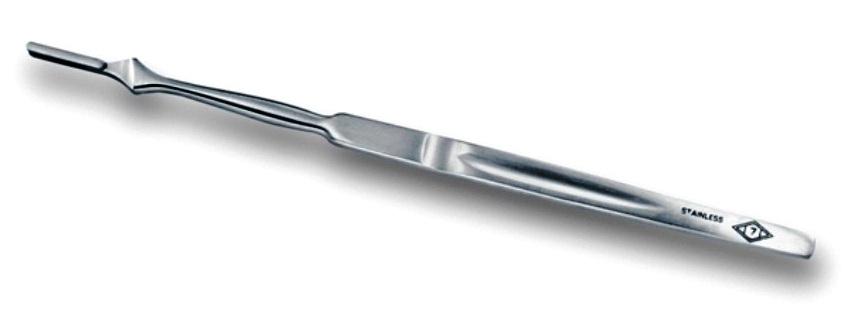
3. Scalpal/ knife/ BP handle to use for skin incision or debridement including the blade no. 20, 22, 23, etc.

4. Surgical Knife – (The Surgical Instruments)
Different types of surgical blades/knives with their number for cutting incision and excision.

Surgical scissor’s names and pictures
5. Mayo Scissor Straight – used for cutting suture thread, bandage, and gauze pieces.

6. Mayo Scissors Curved – used to cut heavy tissue tough structures like skin, fascia, muscle, etc.

7. Metzenbaum Scissors/ Fine Scissors – used to cut fine structures like vessels, tendons, and other soft tissue.
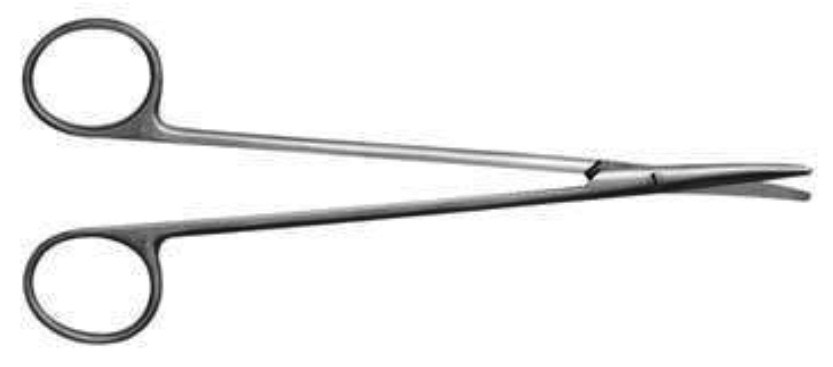
OT instruments name and images/hospital instruments name with image
8. Artery Forceps/ Heamostate – Artery forceps, also known as hemostats, are crucial instruments in surgical procedures used to control bleeding by clamping blood vessels or tissue.

9. Kelly Hemostatic Forceps/ Mosquito/ Rochester pean forceps –
This Surgical Instrument is used to clamp small blood vessels it’s a straight mosquito and a curved mosquito according to its jaw angle. surgical instruments with names and uses.
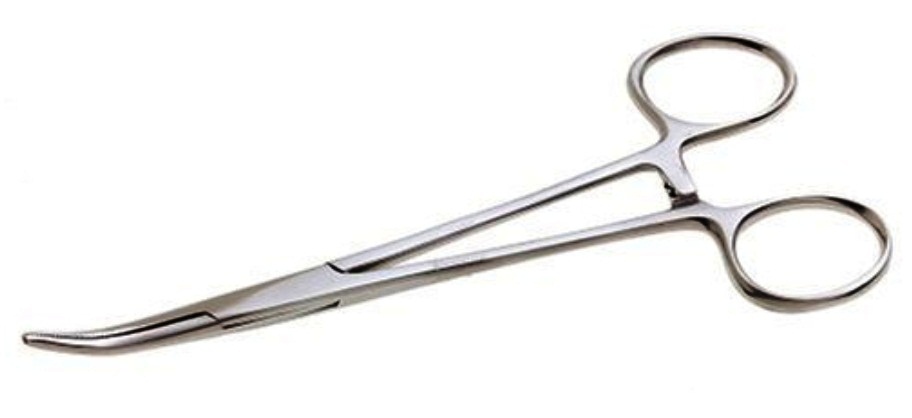

10. Burlishear – A Burlishear is used to clamp deep blood vessels. Burlishears have two closed finger rings. Burlishears with an open finger ring are called tonsil hemostats.

11. Allis Forceps or allis clamps – With a sharp Tooth, it’s used and designed to grasp and hold heavy tissue, organs, skin, fascia tissue, and soft tissues like bowel and breast tissue. also used in the clamp and hold operating materials such as tubes and drapes. (surgical instruments with names)

12. Babcock Forceps –
Similar to Allis forceps/Clamp. It is less traumatic due to its wider and rounded edges. mostly used in laparotomy for grasping tube-like organs or structures like ureters, intestines, appendices, and other delicate tissue.

13. Sponge Forceps –
Sponge forceps are mostly used in surgical procedures, to create a surgical site using a sponge to paint betadine or spirit. Another use of sponge forceps is to hold the hard surface and to hold and retract the cervix.

14. Towel Clamp/Clip –
This Surgical Instrument is used to hold and grasp towels and drapes, to maintain a sterile field during surgery or any invasive procedure.

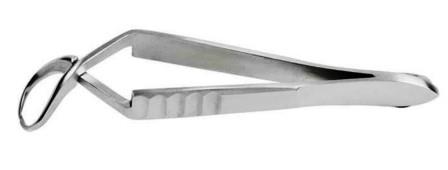
15. Kochar forceps –
It has 1×2 teeth on a straight or curved jaw. available in various sizes. It is used for a strong grip and is mostly used in orthopedics, and general surgery to hold the muscles, ligaments, gallbladder, thyroid, etc.
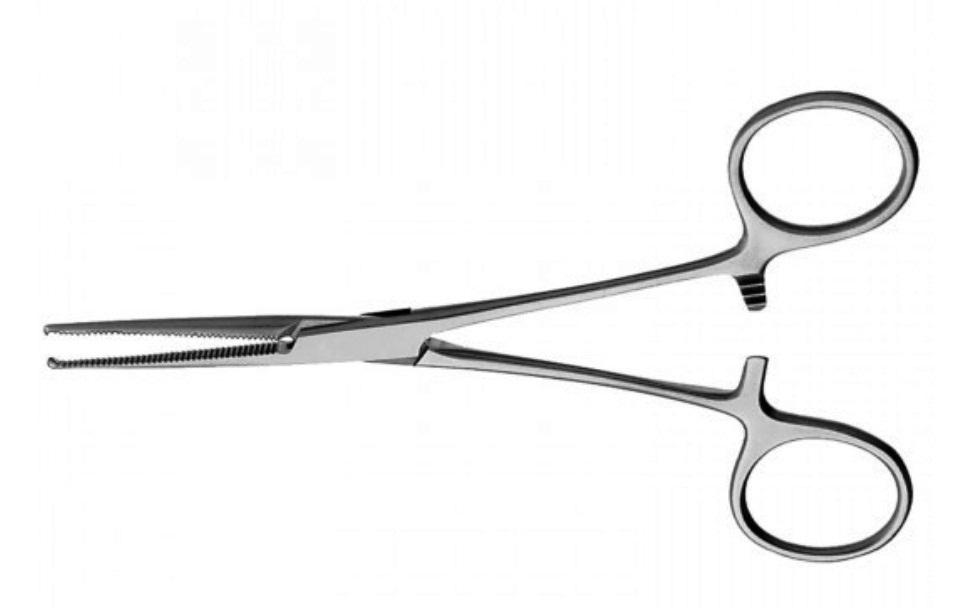
16. Hemostatic clips and applicator –
This surgical Instrument is used in surgical procedures and other bleeding conditions to control bleeding by application of a hemostatic clip. mostly used in vascular surgeries. It is available in various sizes as per usage. (surgical tools names)
Head Injury/Brain Injury Causes & Classification

17. Right Angle Forceps –
Another name is “Mixter”. A right angle is used to clamp hard-to-reach vessels and to place sutures around the vessel. The right angle with a suture attached is called a “tie on a passer”.
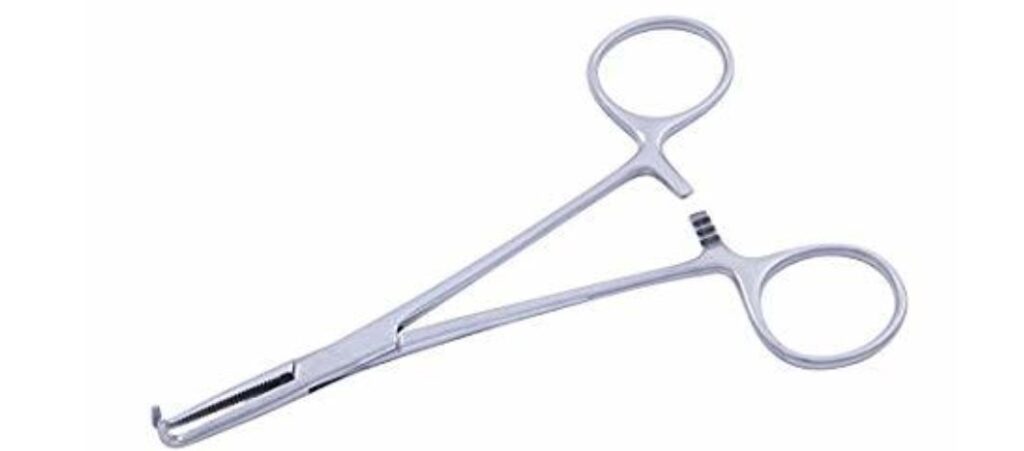
18. Mayo-Hegar Needle Holder-
A needle holder is used to grasp/hold and guide the needle when suturing.

19. DeBakey forceps- Surgical Instrument
It is atraumatic tissue forceps, used for delicate tissue, particularly in cardiovascular surgery to avoid tissue damage during manipulation.
SOLVED PAPER OF STAFF NURSE EXAM
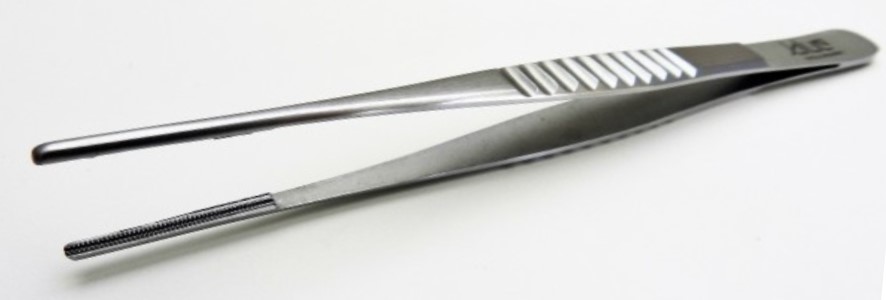
20. Adson pickup forceps or Dura forceps-
Nontoothed used to grasp the delicate tissue. Or with teeth used to grasp the skin.

21. Tooth forceps/ Thumb forceps-
These forceps are used to grasp/hold tough/hard tissue such as breasts, skin, fascia, etc. Single-tooth forceps are known as “Rat tooth forceps”. It’s available in single or multiple teeth.

22. Russian Tissue Forceps –
This is a Rounded perimeter multi-tooth tip used for maximum tissue grip, and nontraumatic tissue grasping during dissection.

Retractors – surgical instruments and their uses
23. Deaver retractor-
It is used to retract deep abdominal or chest incisions. available in various widths.
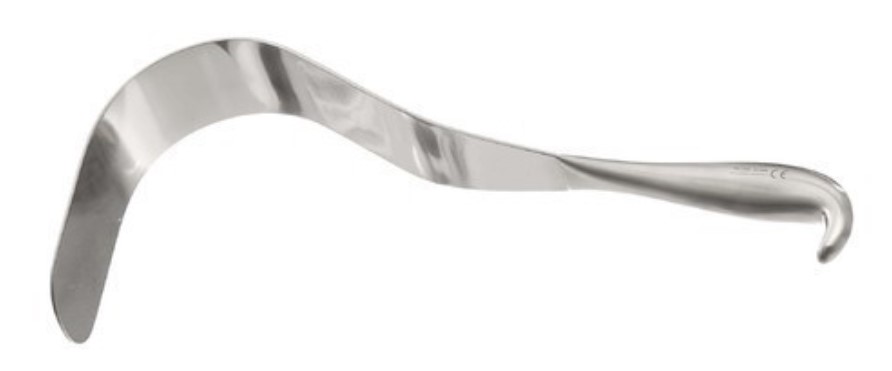
24. Richardson retractor-
This retractor is used to retract deep abdominal or chest incisions.

25. Goulet retractor-
It is used to retract shallow or superficial incisions. Surgical Instrument

26. Army-Navy retractor/US Army retractor-
It is used to retract shallow or superficial incisions.
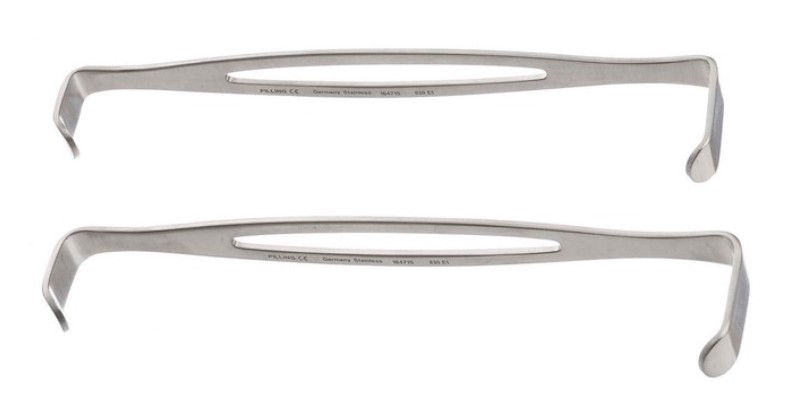
27. A Weitlaner Retractor/Self-Retaining Retractor –
It is available with two types of ends, Sharp and Blunt. It is mainly used for retracting skin ends in small incisions. Like bone & joint procedures, small neurosurgical procedures, and plastic surgeries.
Craniotomy The Treatment of head injury

28. Gelpi Perineal Retractor –
Which has two pointed ends, it is used to retract small incision.

29. A Balfour with bladder blade Retractor – Surgical Instrument
It’s used to retract wound edges during deep abdominal procedures.
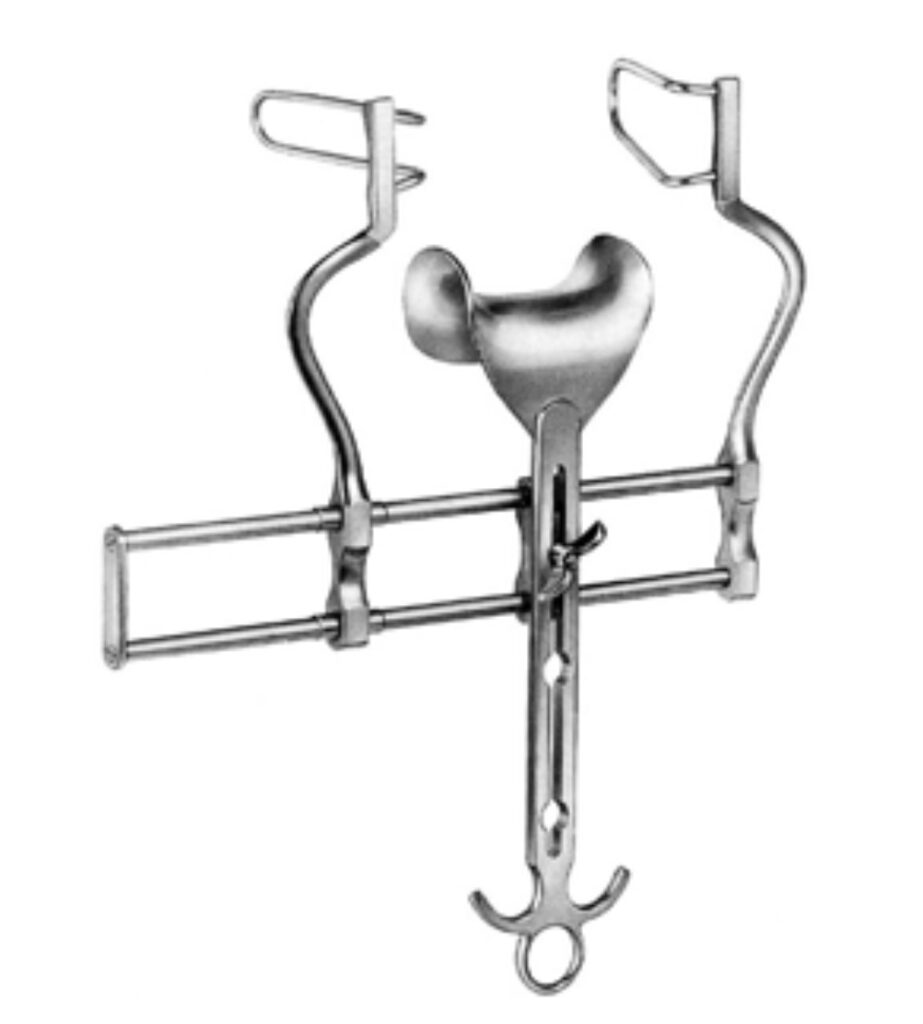
30. Cat’s Paw Retractor –
It has two ends, one side single right-angled blade and the cat’s claw-shaped blade on the other side. it’s mostly used in hard skin areas surgery like hand and foot.
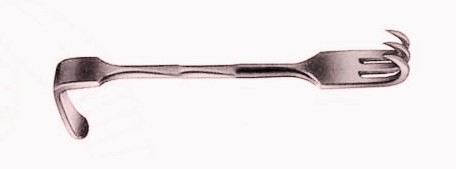
How many types of surgical instruments are there?
Surgical instruments are classified based on their functions, and while there are many instruments used in various surgical specialties, they generally fall into several broad categories. Here’s an overview of the main types of surgical instruments and their functions:
1. Cutting and Dissecting Instruments – Scalpels, Scissors, Bone Saws
2. Grasping or Holding Instruments – Forceps, Dressing Forceps, Hemostatic Forceps, Needle Holders.
3. Hemostatic Instruments – Hemostats, Kelly Hemostats, Rochester-Pean Hemostats, Clamps.
4. Retractors – Handheld Retractors, Senn Retractors, Richardson Retractors, Self-Retaining Retractors, Balfour Retractors., Weitlaner Retractors.
5. Suctioning Instruments – Suction Devices, Yankauer Suction Tip, Poole Suction Tip.
6. Stapling Instruments – Surgical Staplers, Linear Staplers, Circular Staplers.
7. Measuring Instruments – Calipers, Graduated Rulers
8. Specialized Instruments – Electrocautery, Endoscopic Instruments, Biopsy Forceps.
9. Suturing Instruments – Needles.
Each category includes a variety of instruments designed for specific tasks within that category, and the choice of instrument depends on the procedure, the surgeon’s preference, and the patient’s needs.
How do cutting and dissecting instruments differ?
Cutting instruments, like scalpels and scissors, are designed to make incisions and cut through tissues. Scalpels have a single-use blade for precision cutting, while scissors come in various types for different cutting tasks (e.g., Metzenbaum for delicate tissue, Mayo for heavier cutting). Bone saws are specifically used for cutting bone.
What are hemostatic instruments used for?
Hemostatic instruments, such as hemostats and clamps, are used to control bleeding by clamping blood vessels or tissues. They help manage blood flow during surgery, either by temporarily occluding vessels or by preparing them for ligation.
What is the difference between handheld and self-retaining retractors?
Handheld retractors are manually held by the surgical team to keep tissues away from the surgical site. Self-retaining retractors have a mechanism that holds them in place without continuous manual effort, providing a stable retraction.
What are specialized instruments and when are they used?
Specialized instruments include tools like electrocautery devices for cutting and coagulating tissue with electrical currents and endoscopic instruments for minimally invasive procedures. These tools are designed for specific tasks and enhance precision and effectiveness in various surgical contexts.
Also, read
Instruments Used in Gynecology and Obstetrics pdf
WHAT IS THE TISSUE – ITS TYPE AND FUNCTION
Nursing officer model paper online exam 3rd
Types of Wound | Wound Definition
Nursing officer model paper online exam 3rd
Pharmacist, Question Paper CGHS Delhi 2018
Carboxymethylcellulose eye drops trade name Uses, side-effect


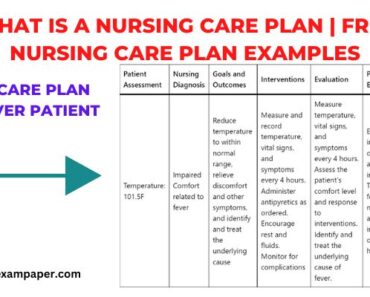

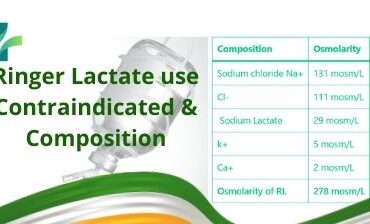

I like your note is very good for a learner, i.e. easy to read and to understand
thank michael lacor hospital gulu uganda
It is very good n usefull
Can any body has nursing instrument in PDF format please 🙏 I need it. Here is my phone number 07044196546
Dear, you can download the PDF file from the end of the article from the given link.
Ott download Hindi photo
Thank you very much, your note is very easy to understand for beginners like us.thank you very much sir i really appreciate.
Nyc Post Sir Superb…..
I realIy love the explanation is easy to understand it really interesting it gives me more knowledge thanks you
THIS IS GREAT INFORMATION AND THE EXPLANATION IS EASY TO UNDERSTAND THANK YOU!!
THIS IS GREAT INFORMATION AND THE EXPLANATION IS EASY TO UNDERSTAND THANK YOU!!super
Very simple and understandable. Thank you
Thanks a-lot very simple and easy to understand
This is great information and the explanation is easy to understand thank you so much